Animal identification Adding Up to 5 Worksheets for Ages 3-9
27 filtered results
-
From - To
Discover our engaging "Animal Identification Adding Up to 5 Worksheets" designed for children aged 3-9! These fun, interactive worksheets combine the joys of learning with the fascination of animals, making educational play appealing and effective. Each worksheet emphasizes counting and simple addition skills, encouraging kids to identify various animals while reinforcing their math abilities. Through colorful illustrations and age-appropriate tasks, these resources promote cognitive development and numeracy in a playful way. Perfect for home or classroom use, our worksheets offer a captivating blend of creativity and mathematics, ensuring an enjoyable learning experience that strengthens both animal knowledge and basic math skills.
Animal identification is a valuable tool for enhancing early learning experiences for children aged 3-9. Understanding animal names and characteristics not only helps to build vocabulary but also strengthens cognitive skills. By learning to identify different animals, children can practice addition through engaging activities that combine counting and matching.
When parents and teachers introduce activities where kids add up to five using animals—for instance, counting how many ducks, cats, or dogs they see in picture books or during nature walks—they make learning fun and interactive. This hands-on approach encourages curiosity and fosters a deeper connection with the natural world.
Moreover, teaching animal identification along with number recognition supports critical thinking and problem-solving abilities. Children can work in groups to collect a certain number of toy animals, leading to cooperative play and social skills development. As they progress, they can also explore concepts like habitats, diets, and ecosystems, which enriches their understanding of biology and environmental science.
Ultimately, engaging with animal identification and simple math concurrently nurtures a child's numerical understanding and promotes a love for learning, laying the groundwork for future educational success. Parents and teachers should embrace these opportunities to foster skills that extend beyond arithmetic alone.
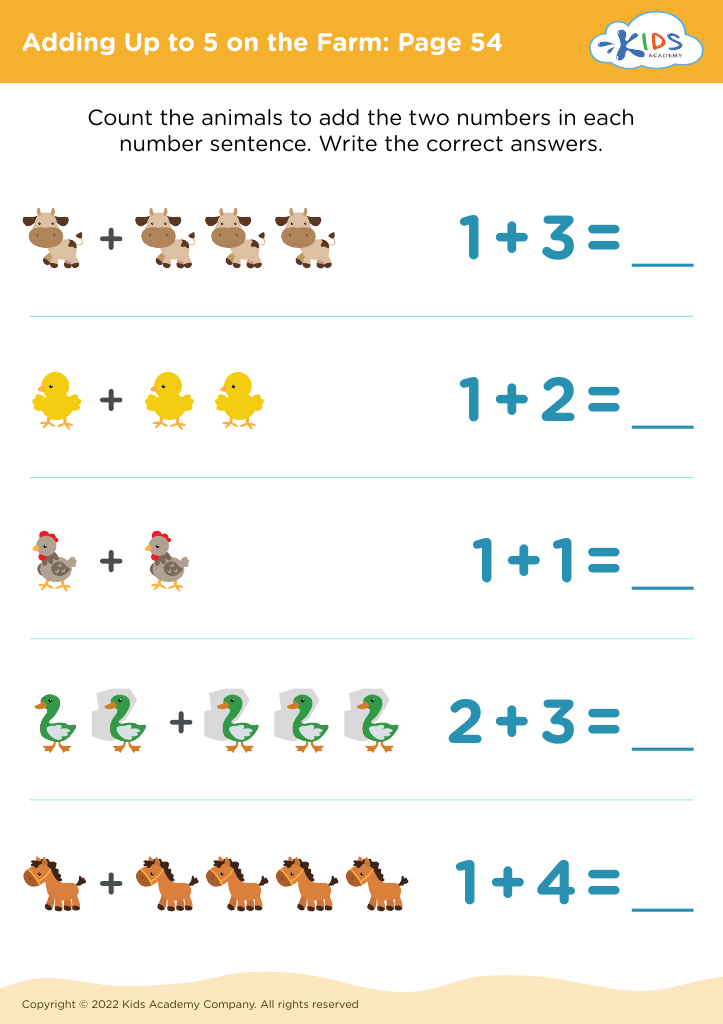

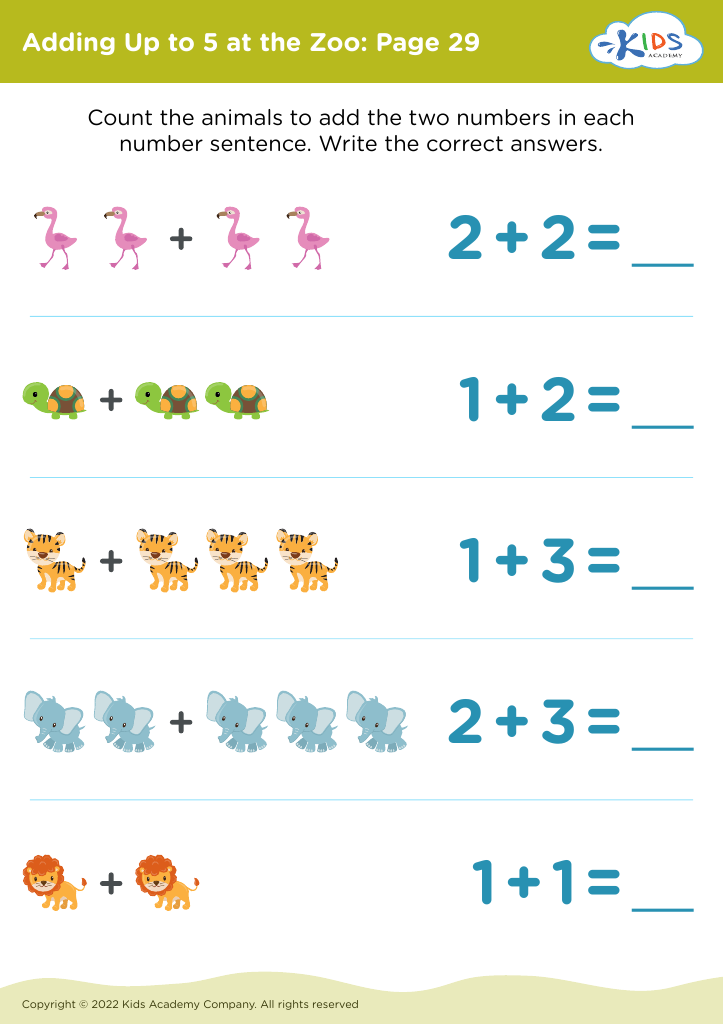
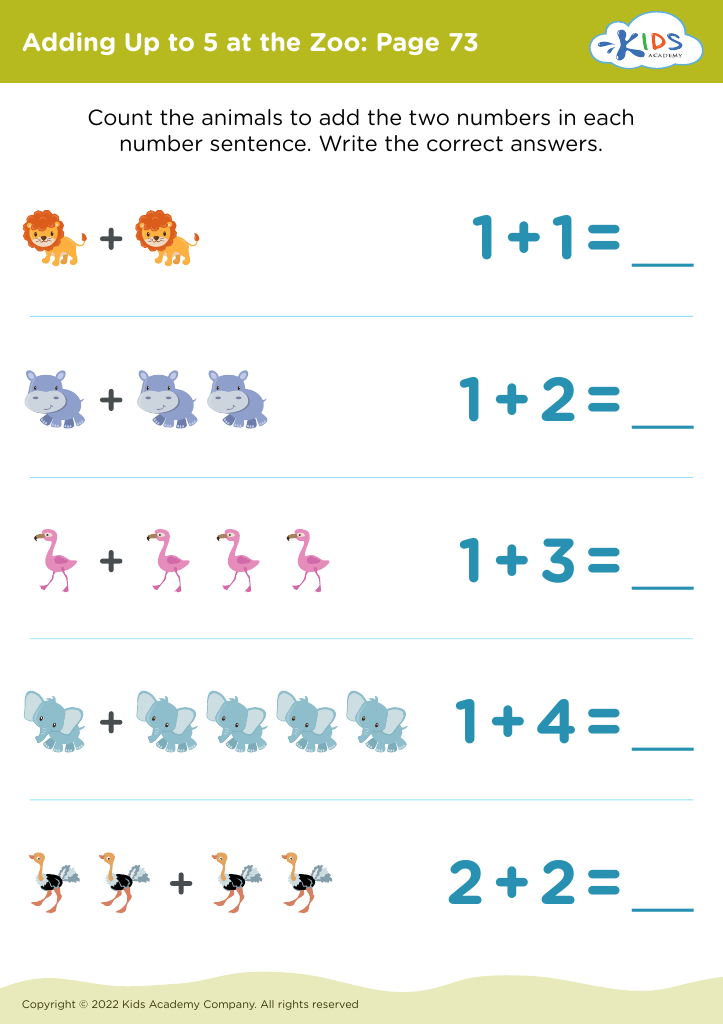
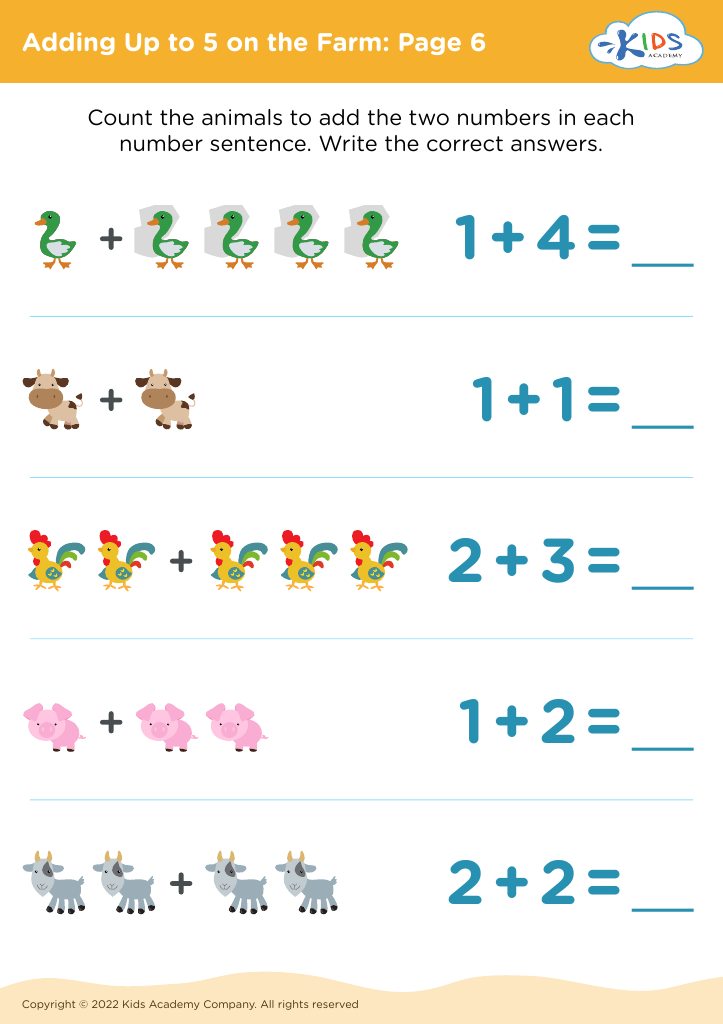
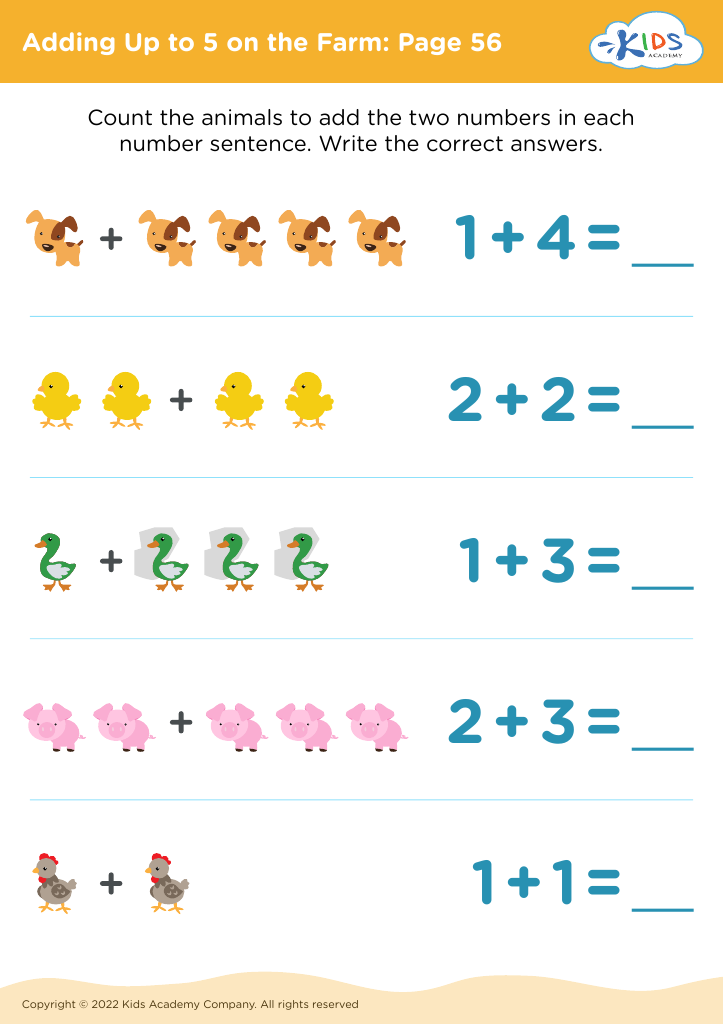

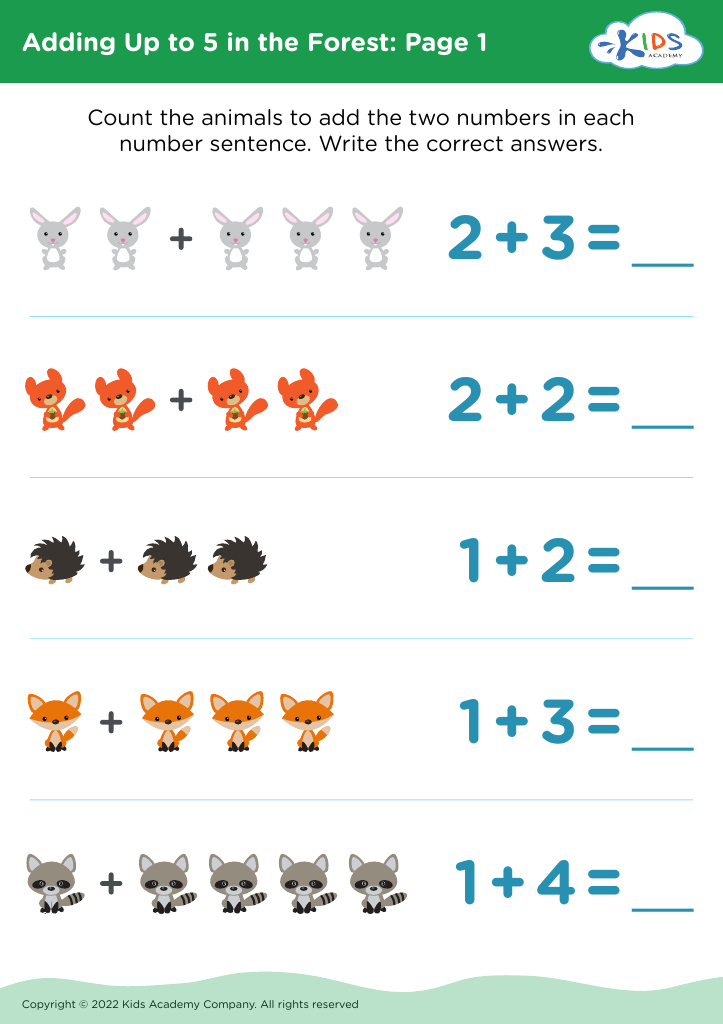
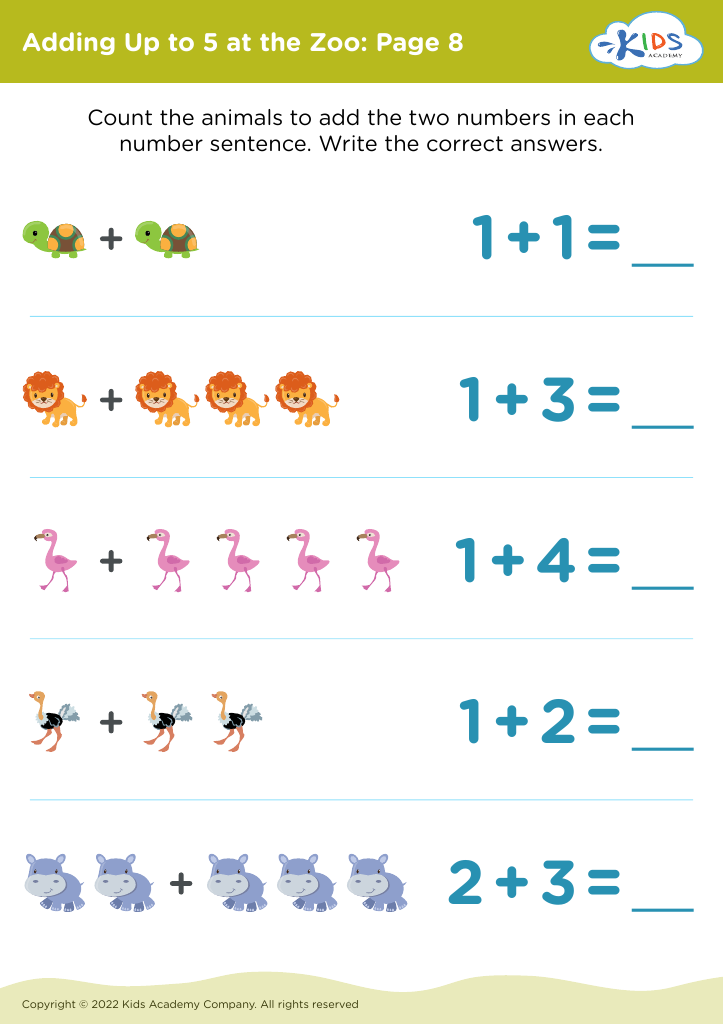
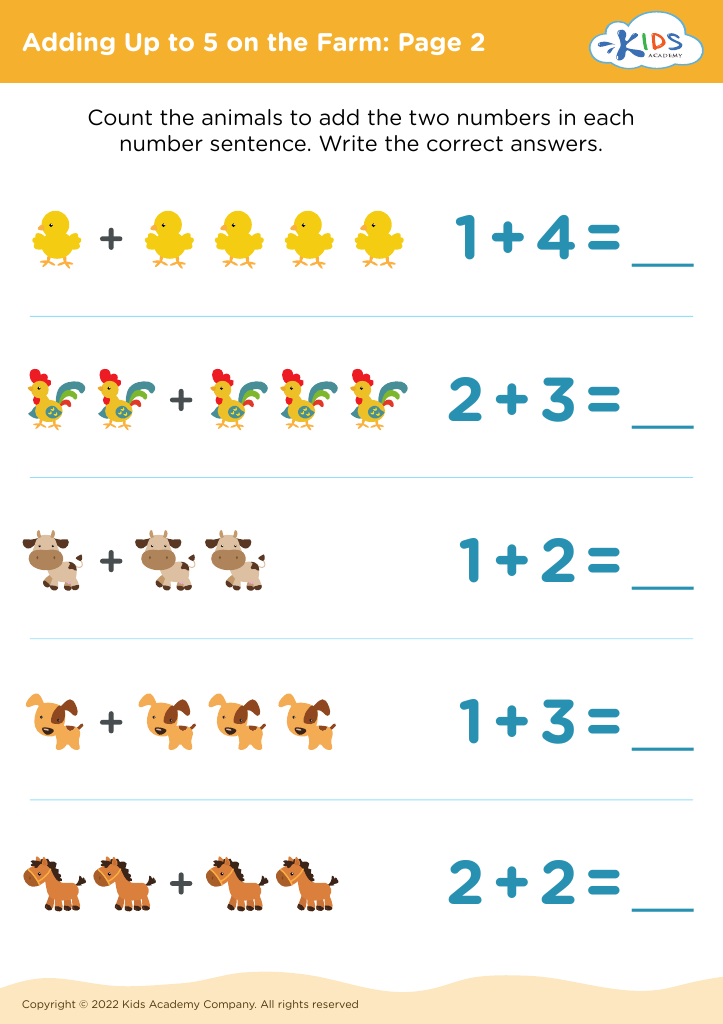
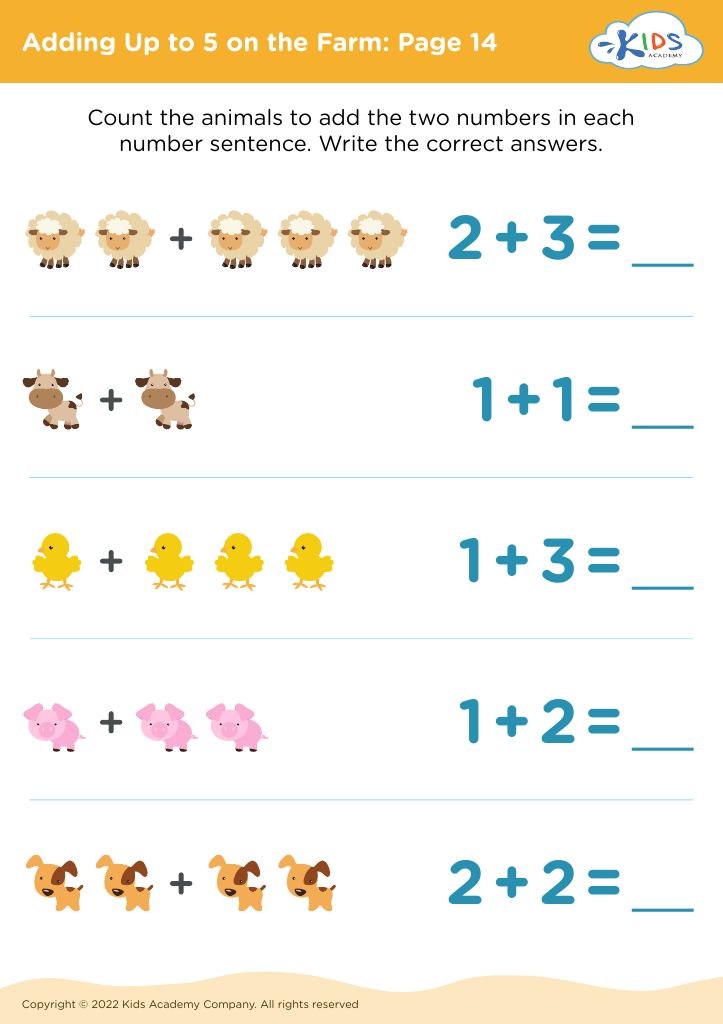
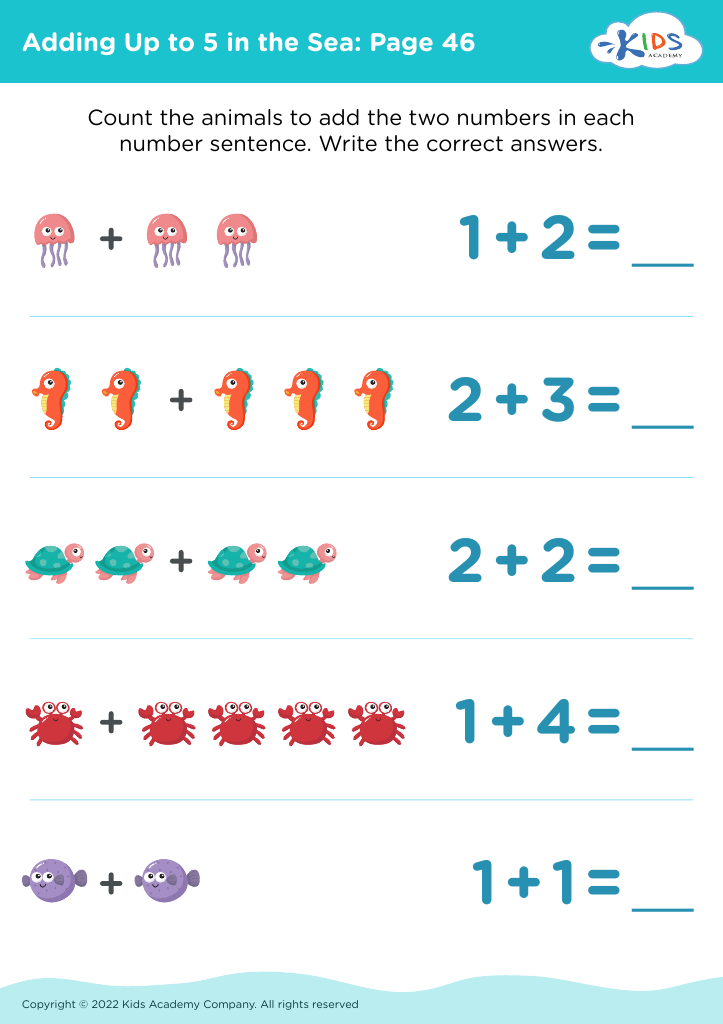
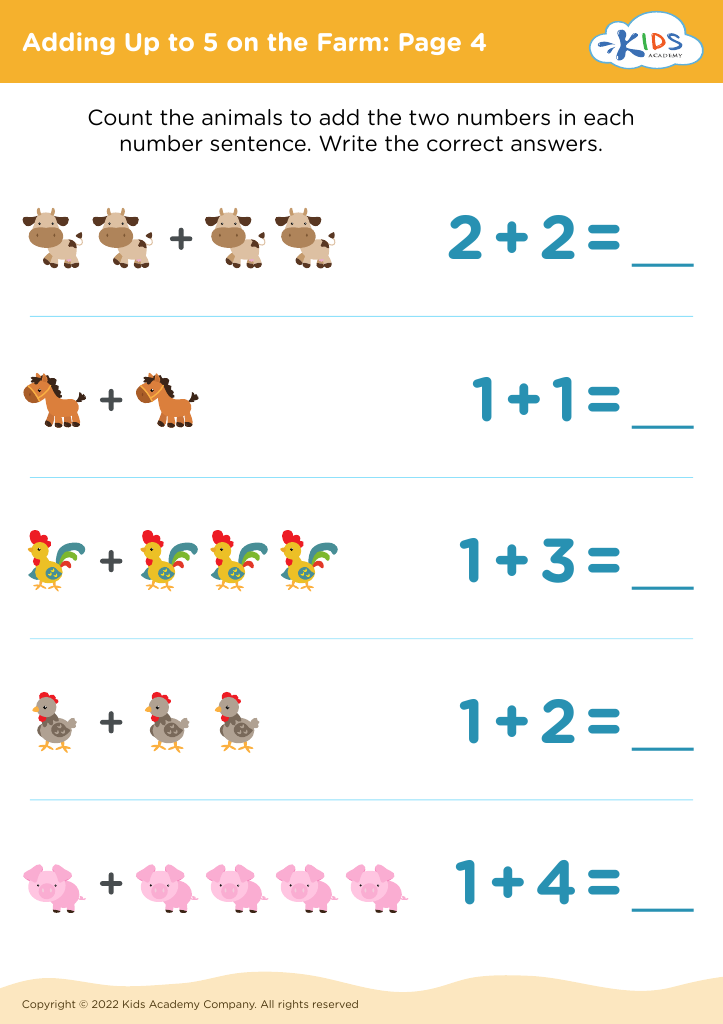
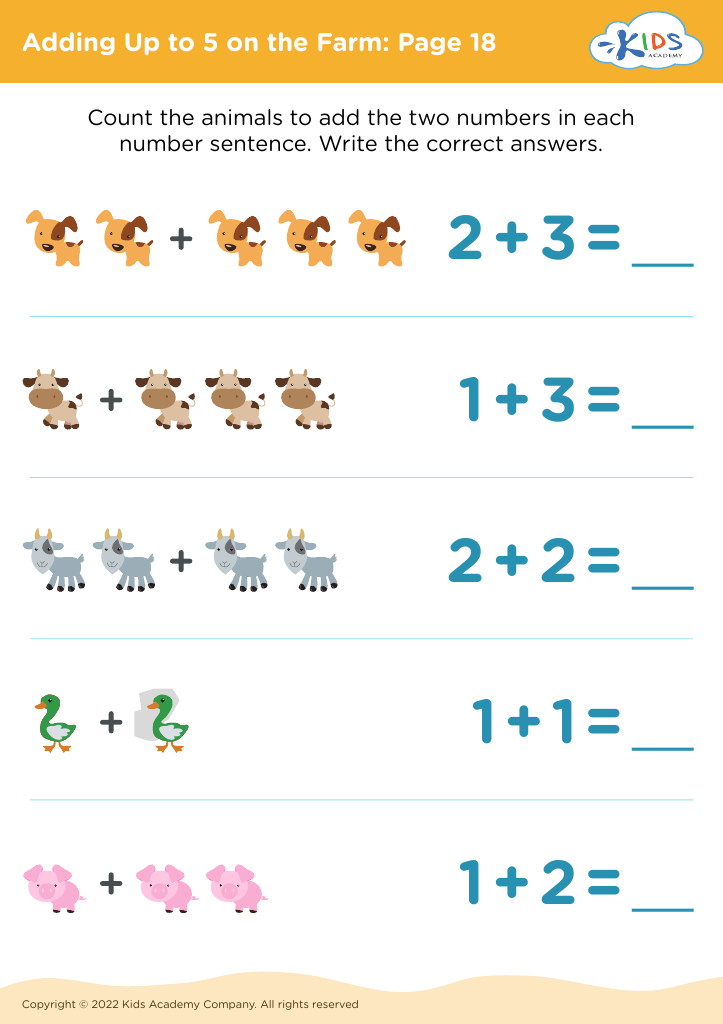
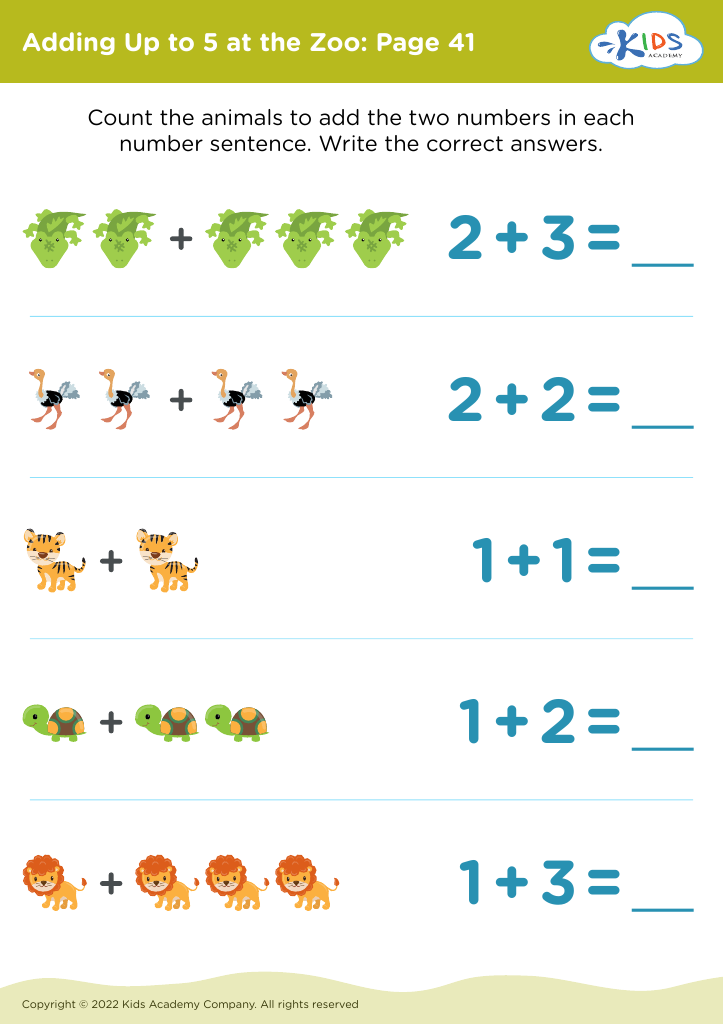
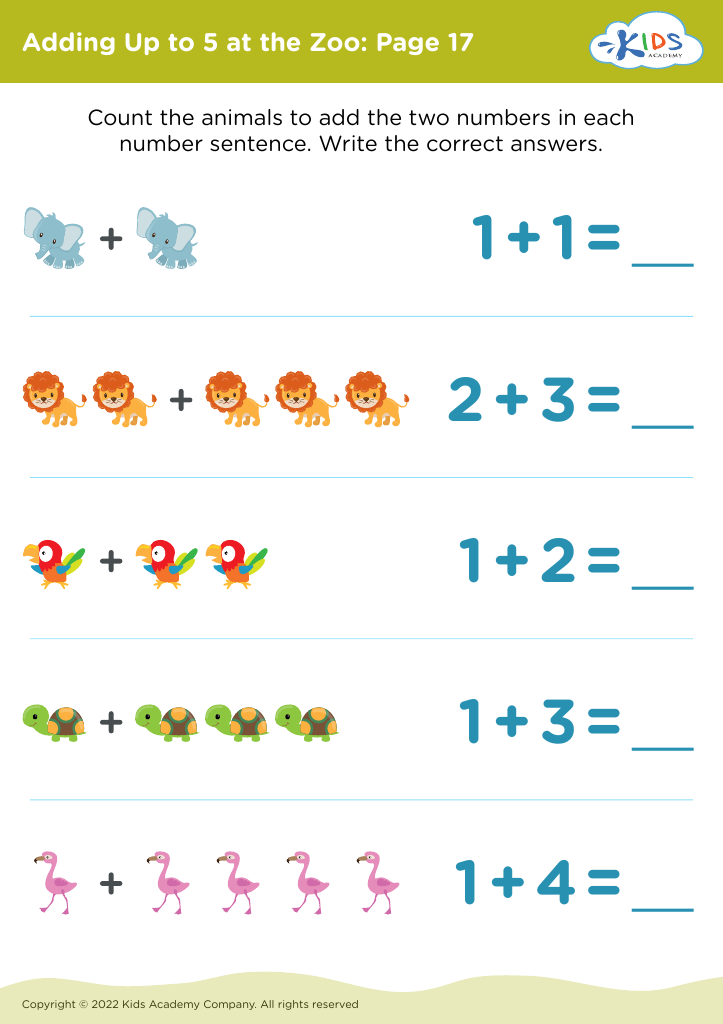
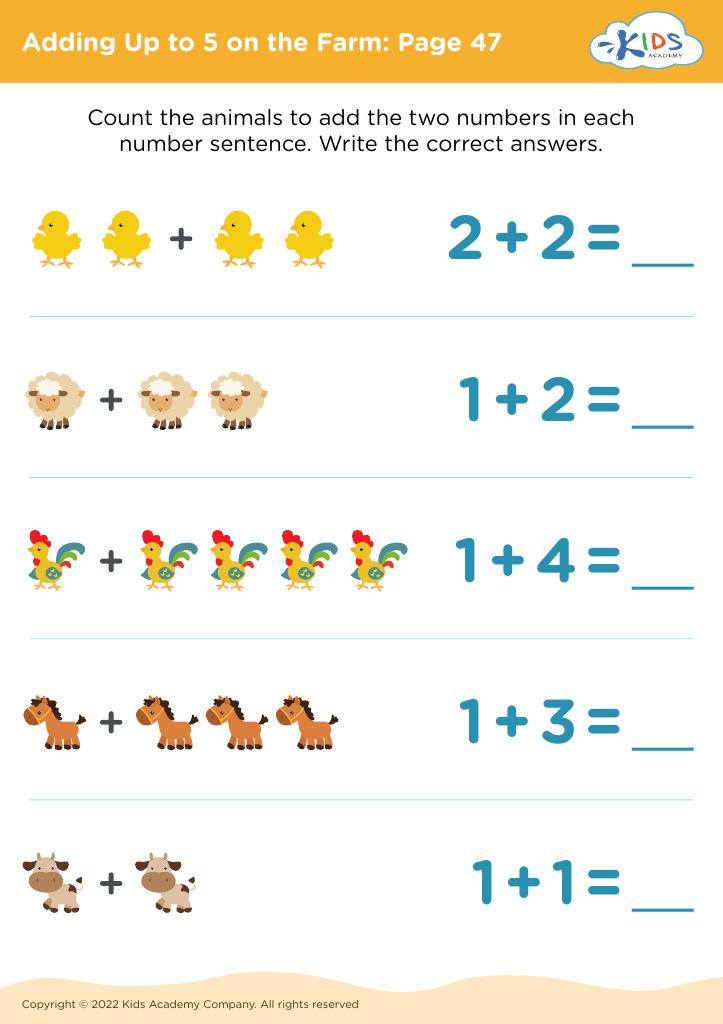
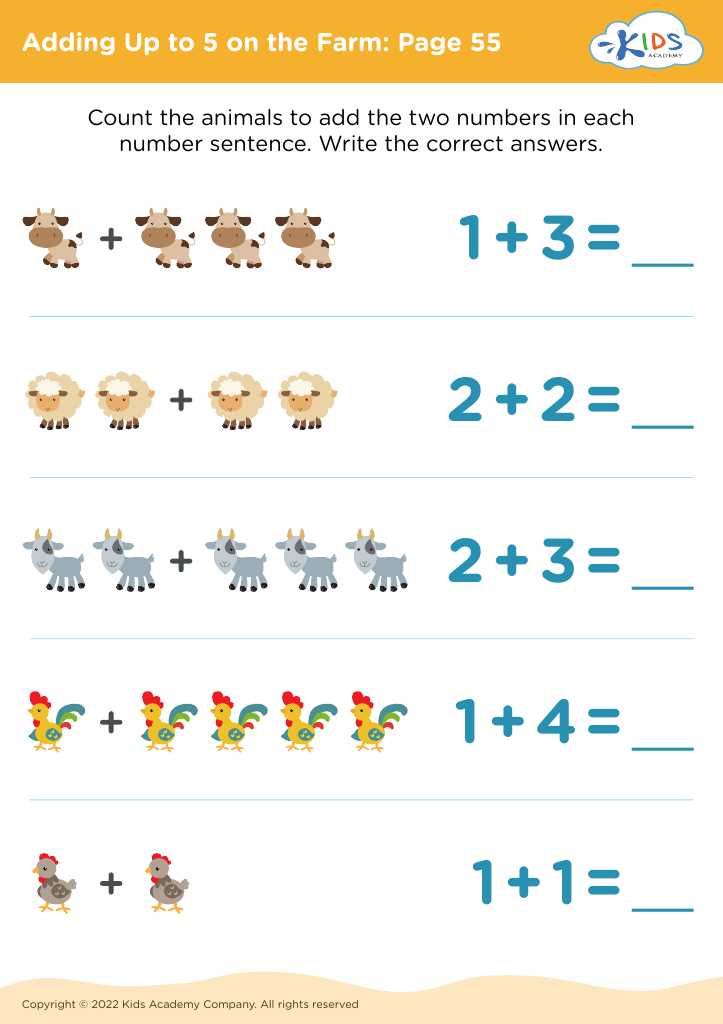
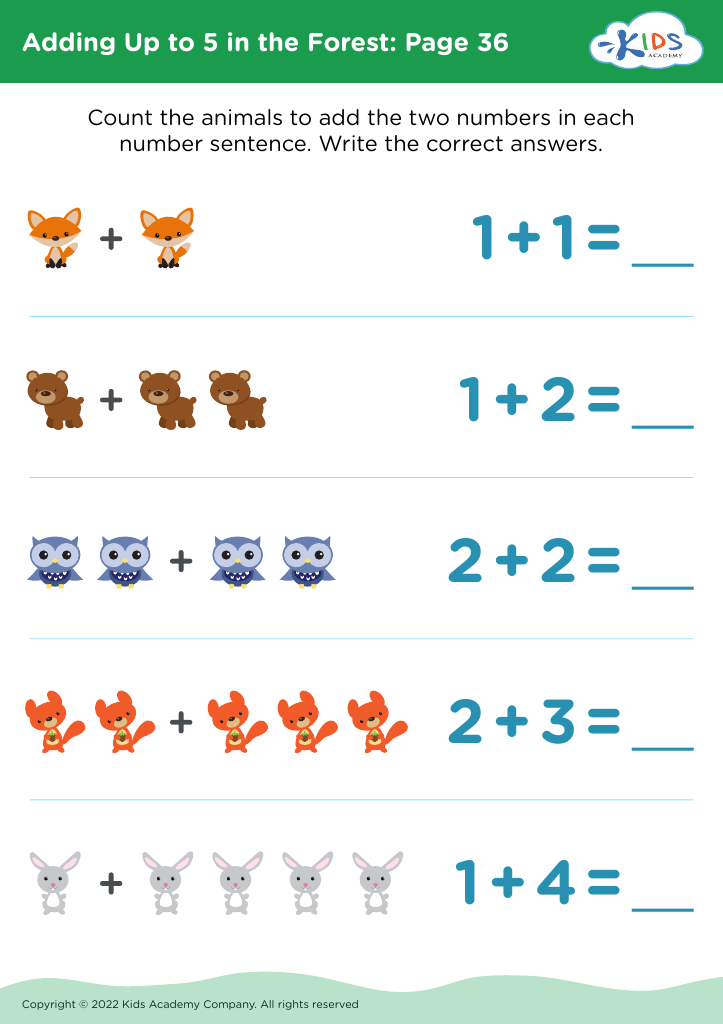
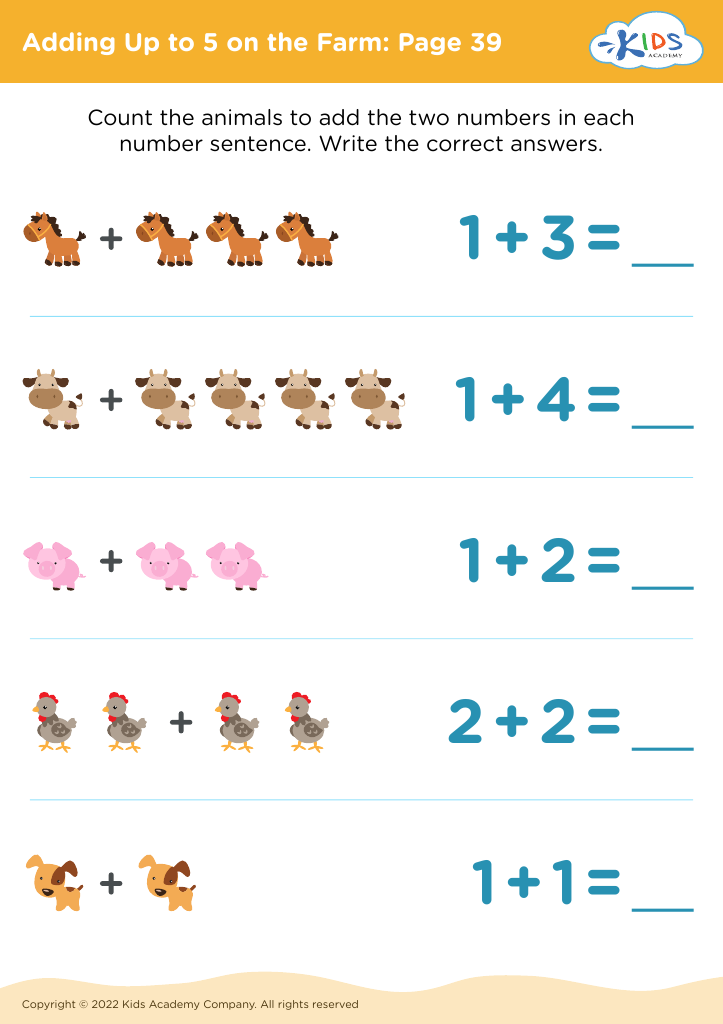
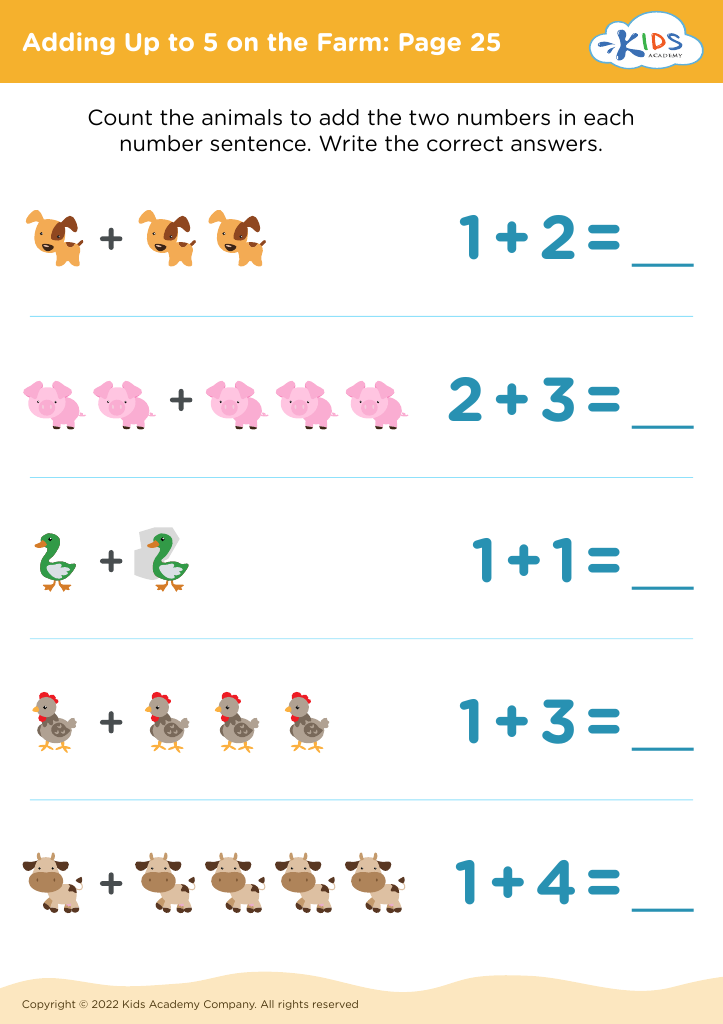
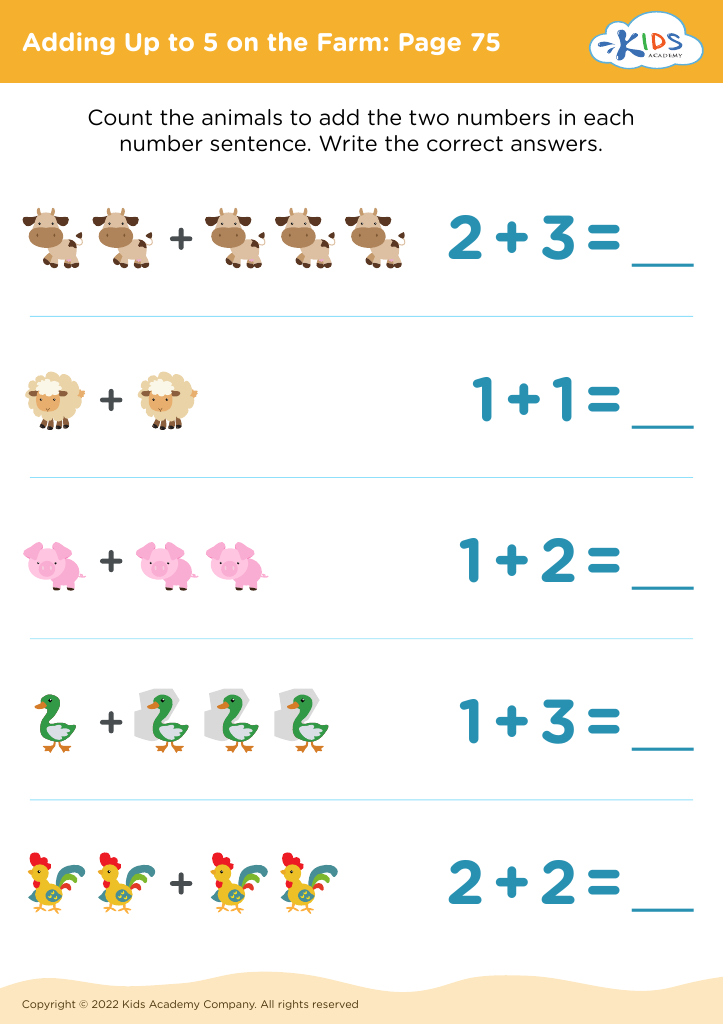
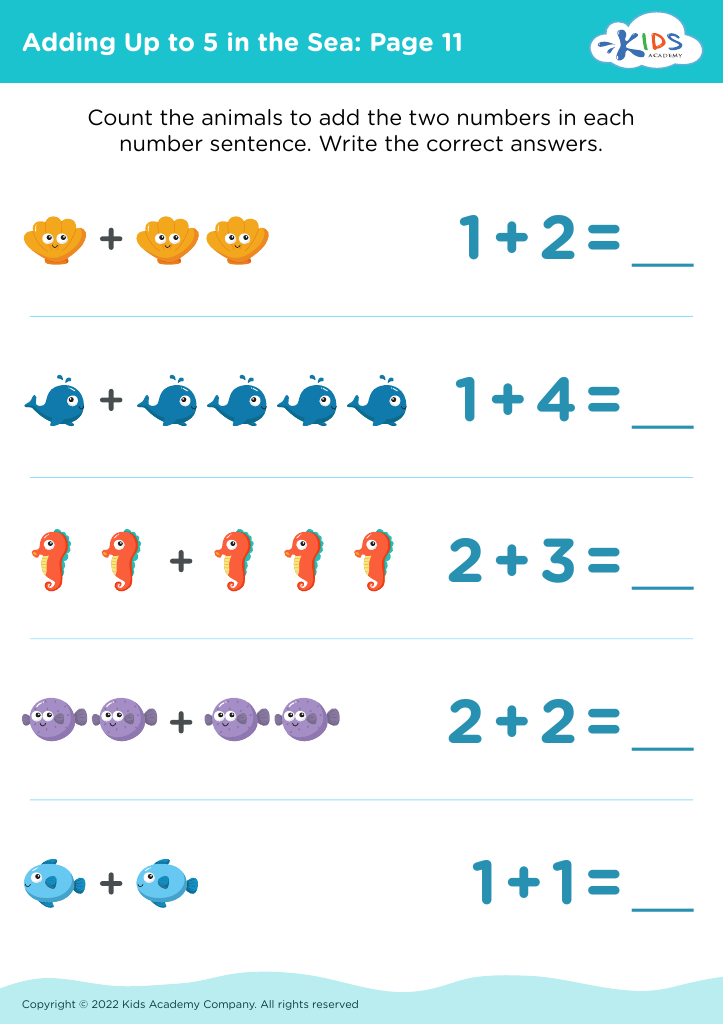
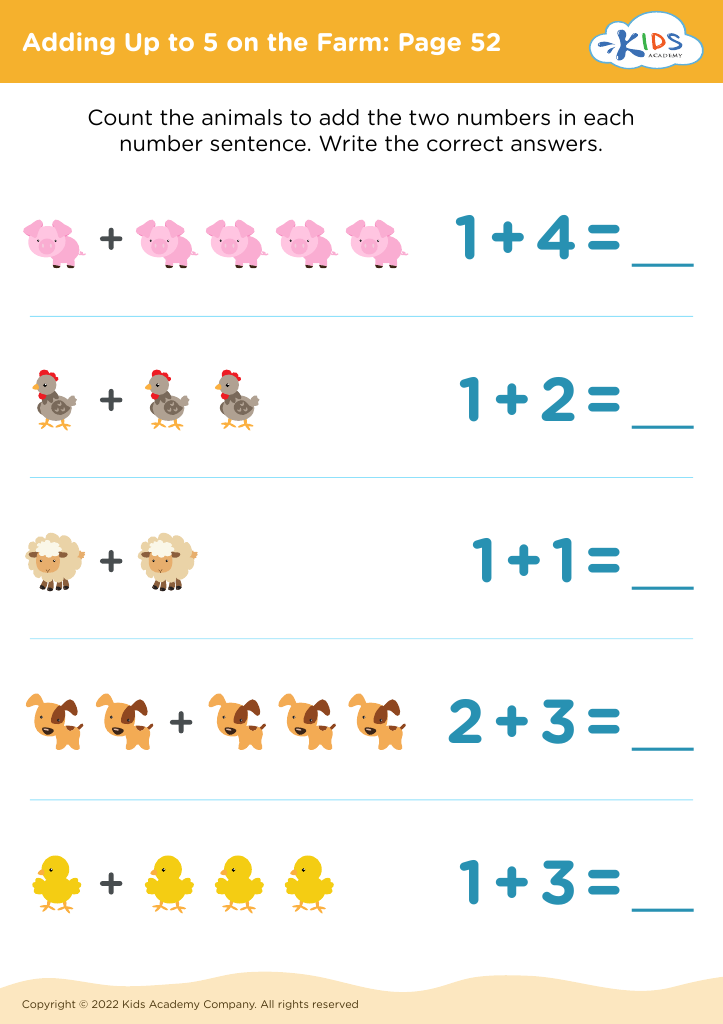
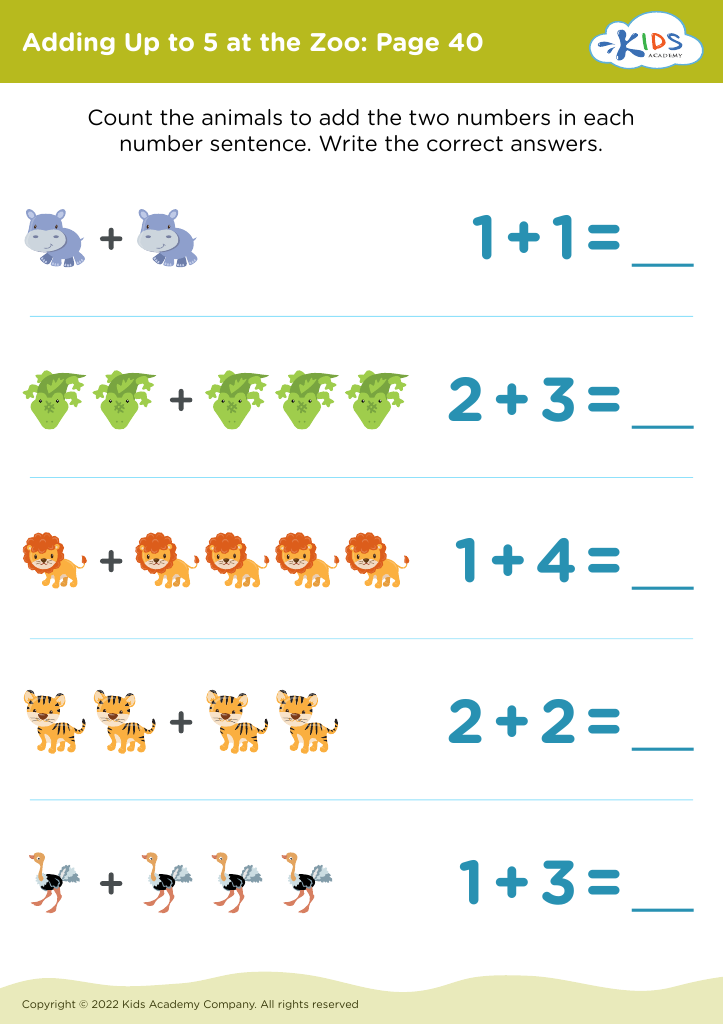
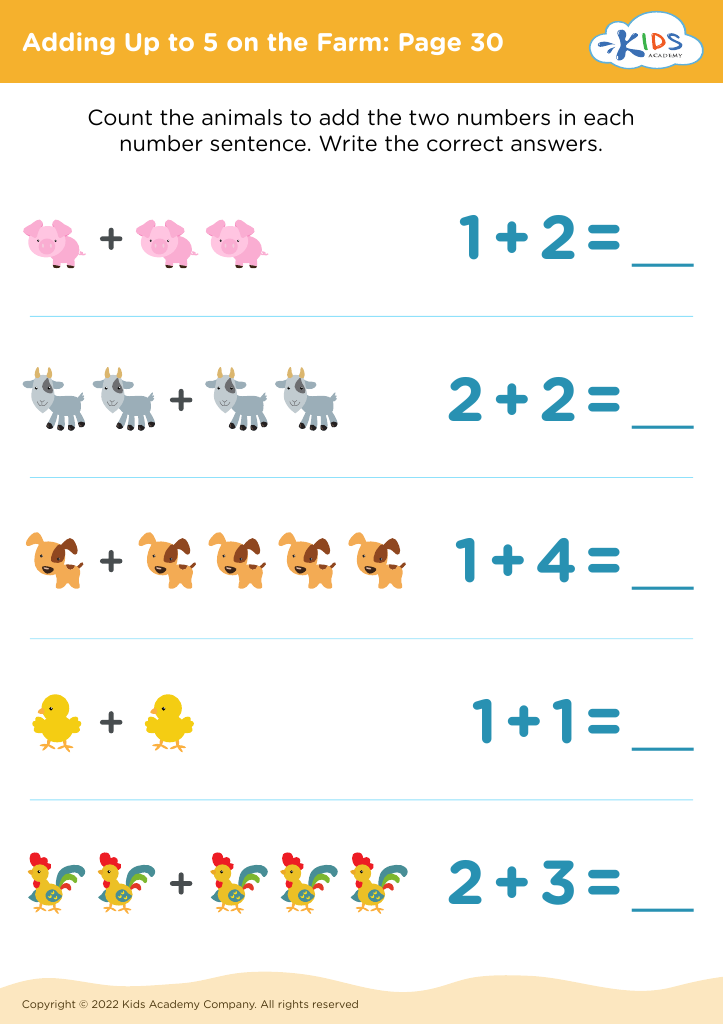



%20(1).jpg)




.jpg)









